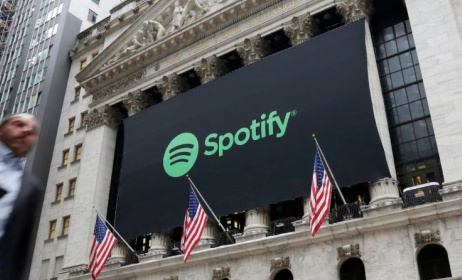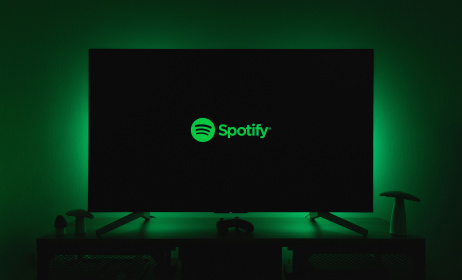Spotify’s Q1 earnings exceed expectations
Swedish music streaming service Spotify this week reported its quarter one (Q1) earnings with revenues of €1.84bn ($2bn), up by 22% year-on-year, and more than 130 million paid music subscribers, which represents 31% growth year-on-year.
 Spotify CEO Daniel Ek sees the streaming service's freemium model as a significant strategic advantage for the months ahead.
Spotify CEO Daniel Ek sees the streaming service's freemium model as a significant strategic advantage for the months ahead.
The majority of the revenue came from premium subscriptions, which grew 23% to €1.7bn, while advertising revenue increased by 17% to €148m. There was also a 31% surge in monthly active users on the platform from last year. The music streaming service added 15 million users in Q1 and ended it with more than 286 million users.
Despite the global uncertainty around COVID-19, Spotify's earnings exceeded analysts’ forecasted revenue of $1.86bn and 128.4 million paid subscribers.
However, Spotify’s advertising business was hit by COVID-19, with ad-supported revenue falling short of expectations. “In March we saw deceleration across all sales channels as previously booked business was cancelled or paused, and programmatic buyers pulled back spend,” Spotify said. “Ad-supported revenue in the last three weeks of the quarter was more than 20% below forecasted levels as a result.”
Usage in car, wearable and web platforms also dropped, but TV and game console grew more than 50% compared to the previous year. Spotify also indicated a notable decline in daily active users and consumption in hard-hit markets such as Italy and Spain. Additionally, there were modest increases in cancellations and payment failures towards the end of the quarter as well as changes in user listening behaviour.
In terms of subscriber numbers, free users continue to outpace paying customers – a model that seems to work for Spotify. “The past few months have only strengthened our belief in the freemium model. Historically, over 60% of our premium users start as ad-supported users, so continuing to grow the top of the funnel is very healthy for our ecosystem. We also know that roughly 70% of churned users are back with Spotify within 45 days of leaving, which includes coming back through either our premium or ad-supported experience.”
In an interview following Spotify's financial results announcement, Spotify CEO Daniel Ek said the freemium model could “be an even bigger strategic advantage” in the months ahead, although he also re-stressed the uncertainty of these times.
Spotify reported a massive overhead reduction with an operating loss of €17m for Q1, compared to an operating loss of €47m in the same period last year. It also reported a net profit of €1m, compared to a €142m loss in Q1 in 2019. This was due to a boost in finance income from €7m in Q4 last year to €70m, and a drop in finance costs from €103m to €12m in the same period.
A number of music technology companies have furloughed their employees due to the impact of COVID-19. However, Spotify has not instated any layoffs so far. The company decided to slow its hiring plans for the remainder of the year, but said the headcount would still be up by 15% year-on-year.
Shareholders lost about 20 euro cents per share, which fared well against analysts' expected loss of 49 euro cents per share. At 25.5% growth rate, the gross margins exceeded the company’s expectations, which is said to be due to the product mix.
About 19% of Spotify’s total monthly active users are now listening to podcasts, up from 16% in Q4 last year. This translates to 54.3 million people. There are more than 1 million podcasts now available on Spotify, with 60% of them from podcast-creation app Anchor, which Spotify purchased last year.
Spotify has revised its forecasts and now expects to generate approximately €7.65bn to €8.05bn in revenue this year, down from its previous estimates of €8.08bn to €8.48bn. The music service still expects to end the year with about 328 million to 348 million monthly active users and about 143 million to 153 million premium subscribers.



























Commentaires
s'identifier or register to post comments